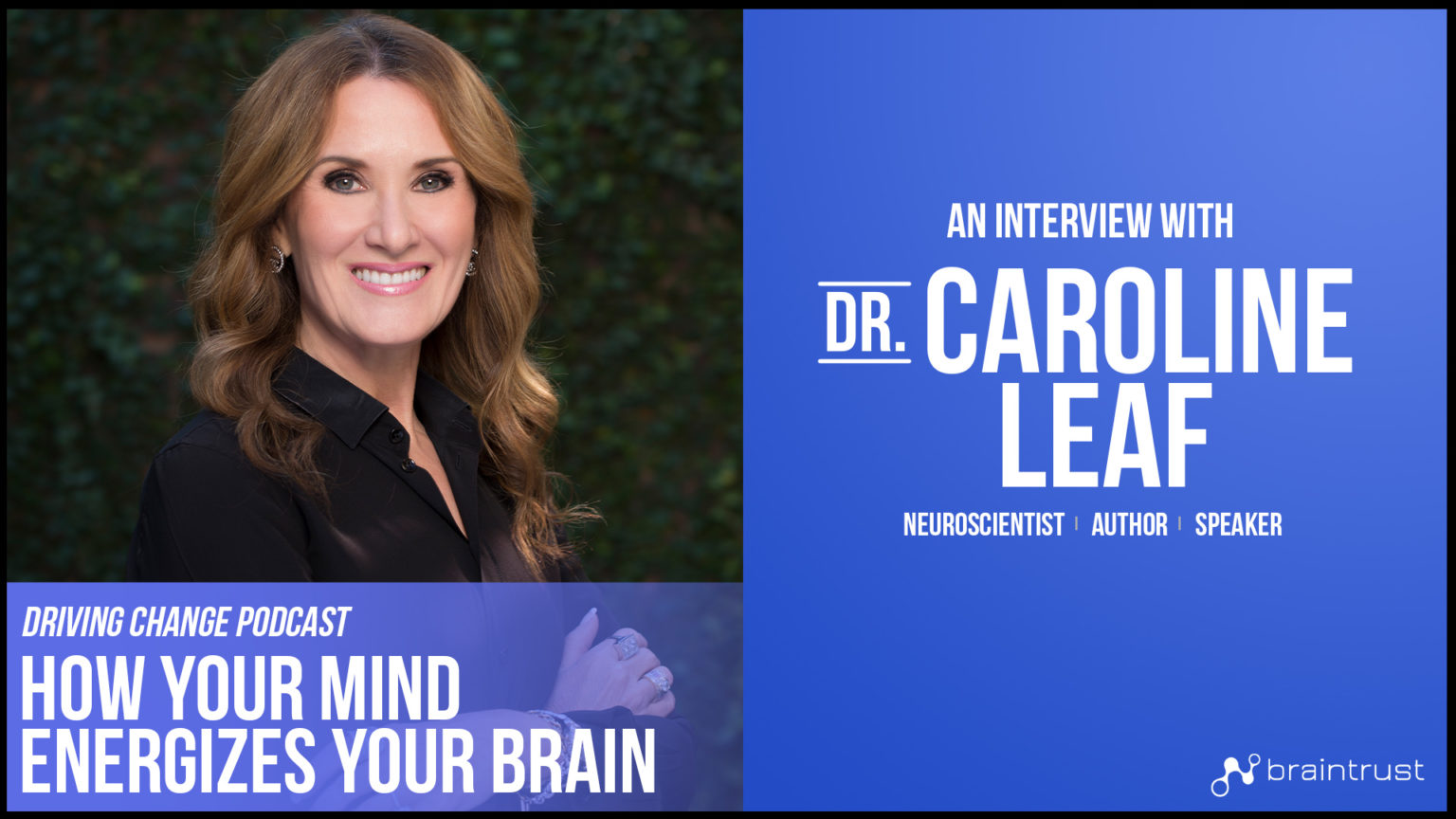
This week we welcome Dr. Caroline Leaf to the show. Dr. Leaf is a communication pathologist and cognitive neuroscientist with a Masters and PhD in Communication Pathology and a BSc Logopaedics, specializing in cognitive and metacognitive neuropsychology. Since the early 1980s she has researched the mind-brain connection, the nature of mental health, and the formation of memory. She was one of the first in her field to study how the brain can change (neuroplasticity) with directed mind input.
During her years in clinical practice and her work with thousands of underprivileged teachers and students in her home country of South Africa and in the USA, she developed her theory (called the Geodesic Information Processing theory) of how we think, build memory, and learn, into tools and processes that have transformed the lives of hundreds of thousands of individuals with Traumatic Brain Injury (TBI), Chronic Traumatic Encephalopathy (CTE), learning disabilities (ADD, ADHD), autism, dementias and mental ill-health issues like anxiety and depression. She has helped hundreds of thousands of students and adults learn how to use their mind to detox and grow their brain to succeed in every area of their lives, including school, university, and the workplace.
Dr. Leaf is also the bestselling author of Cleaning Up Your Mental Mess, Switch on Your Brain, Think Learn Succeed, Think and Eat Yourself Smart, and many more. She teaches at academic, medical and neuroscience conferences, churches, and to various audiences around the world. Dr. Leaf is also involved in the global ECHO movement, which trains physicians worldwide on the mind-brain-body connection, mental health and how to avoid physician burnout.
Dr. Leaf is currently conducting clinical trials using the 5-step program she developed while in private practice to further demonstrate the effectiveness of mind-directed techniques to help relieve mental ill-health problems such as anxiety, depression and intrusive thoughts. The primary aim of these trials is to make mental health care more affordable, applicable, and accessible worldwide, and to reduce the stigma around mental health.




